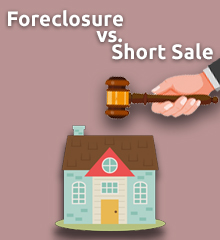Bankruptcy, Divorce and Credit Card Debt — His, Mine & Ours
Bankruptcy and divorce often go hand in hand because making the transition from a single household to two separate ones is an expensive one. When
a couple amasses credit card debt over the course of the marriage, it becomes the responsibility of both parties to pay it off. Unfortunately, when
all of the bills have piled up to a point where it's time to consider bankruptcy, it can throw a huge problem into the already complex morass that
is the divorce process. According to creditcards.com, divorce attorneys, financial planners
and credit counselors all recommend that you do not leave your marriage with any joint debt. While the idea of having all of your joint credit card
debt paid off before the divorce is a great one, it's not always practical. Let's take a look at some of the issues related to how to deal with credit
card debt in relationship to bankruptcy and divorce.
Bankruptcy before divorce
A significant part of the divorce process includes the division of assets and debts. If you file for bankruptcy jointly before the divorce, it will
greatly simplify the division of assets. Bankruptcy does not, however, protect you from your obligation to pay alimony or child support. These are
domestic support obligations, which the federal Bankruptcy Act has declared non-dischargeable.
Chapter 7 Bankruptcy
This kind of bankruptcy liquidates property to pay off debt, and the remainder of the debt (with certain exceptions) can be discharged (eliminated).
It will remain on the debtor’s record for ten years, but when they emerge from bankruptcy they will have a clean financial slate.
Chapter 13 Bankruptcy
This is more of a restructuring process where there are rules about how much income and debt you have in order to qualify. In this form of bankruptcy,
the debtor can get lower payments and more time to pay without the requirement to liquidate property. A Ch. 13 will remain on the debtor’s credit
report for seven years.
What happens to joint credit card debt when only one spouse files for bankruptcy?
The credit card companies don’t care if you are married or divorced. If you and your spouse incurred debt on a joint credit card and only one of you
files bankruptcy and receives a discharge, the credit card company will still go after the spouse who did not file bankruptcy to pay the debt.
What can I do if my ex doesn’t pay their credit card debts?
If your former spouse does not pay their credit card debts, you will be responsible for paying the obligation. If you choose, you can sue your ex
later to recoup that money.
There are many variables that will factor into the decision to file before or after divorce. Speaking with an experienced bankruptcy attorney will
help you get a clear understanding of your options and what the best course of action should be. Bear in mind that a bankruptcy attorney can
represent you as a couple; however, depending on the circumstances surrounding the bankruptcy, each party might want to retain separate counsel.
Each party will then have to get another attorney for the divorce.
Whether you decide to file bankruptcy as a couple before divorce or as individuals after divorce, it is a serious decision with long-term
consequences. A capable bankruptcy attorney can help you make an informed
decision about the best course of action
for both of you. Contact DebtStoppers today to schedule a free initial consultation to review
your options.


